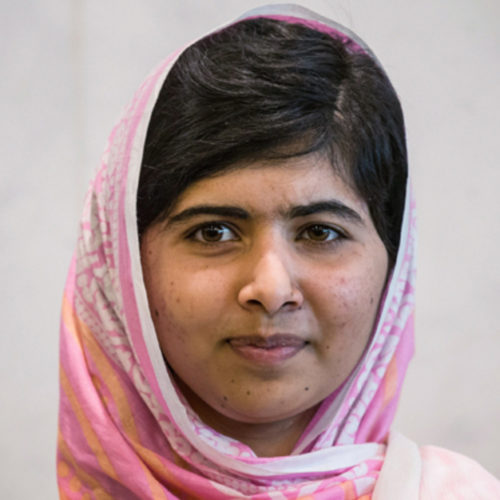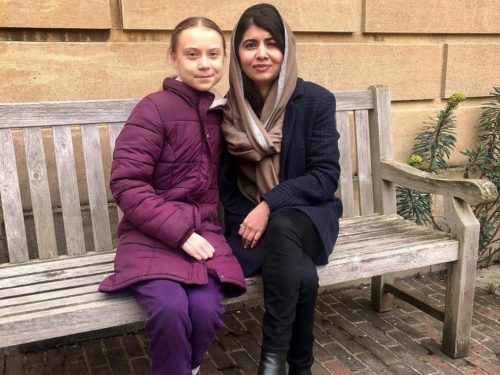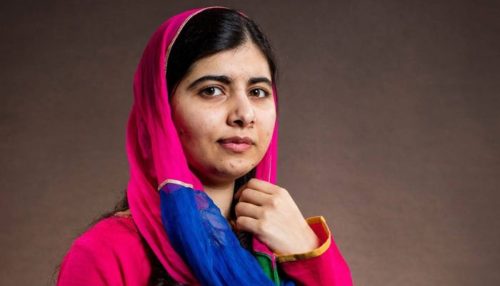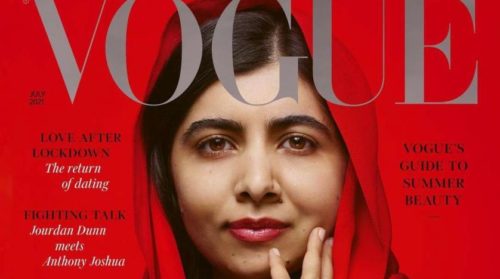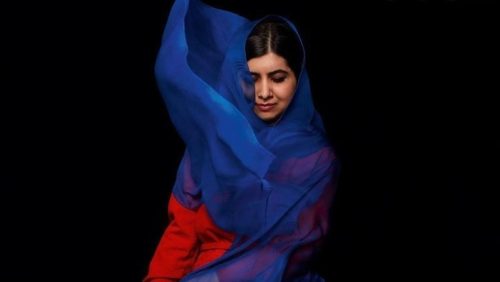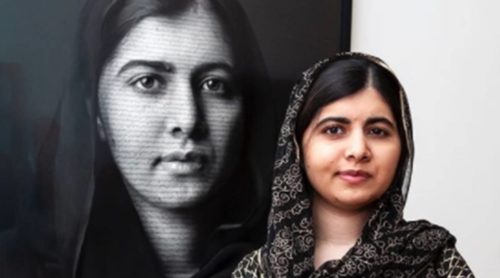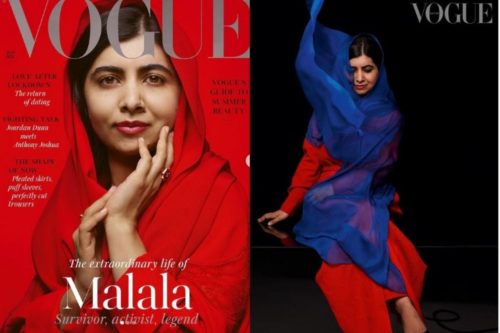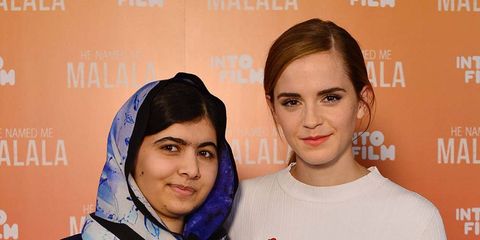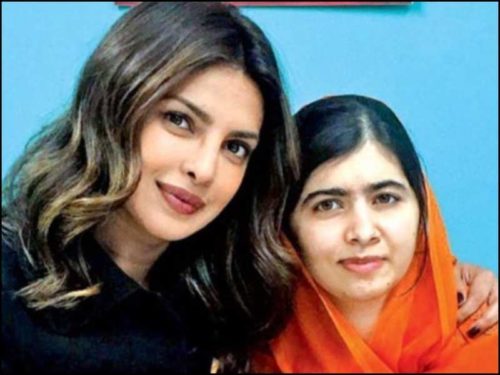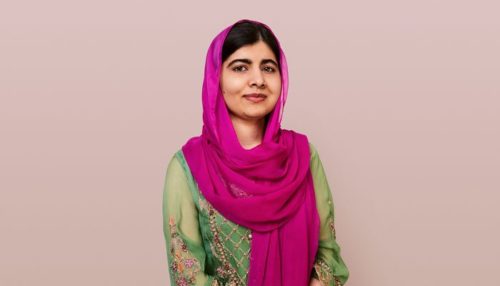Malala 10 Personal Facts, Biography, Wiki
Nationality: Pakistani Hometown: Mingora, Pakistan Real Name Malala Yousafzai Profession Activist for female education Height (approx.) in centimeters- 161 cm in meters- 1.61 m in Feet Inches- 5’ 3” Weight (approx.) in Kilograms- 54 kg in Pounds- 119 lbs Eye Colour Dark Brown Hair Colour Black Date of Birth 12 July 1997 Birthplace Mingora, Swat, Pakistan Zodiac sign Gemini Signature Nationality Pakistani Hometown Mingora, Swat, Pakistan School Khushal Girls High School, Swat, Pakistan Edgbaston High School, Birmingham, England College Not Known Educational Qualification Not Known Family Father- Ziauddin Yousafzai (Pakistani Diplomat) Mother- Toor Pekai Yousafzai Brother- Khushal, Atal Sister- N/A Religion Sunni Islam Ethnicity Pashtun Address Birmingham, England, UK Hobbies Reading, Traveling, Advocating for Female Education Favorite Things Favorite Color Pink, Purple Favorite Author Salman Rushdie Favorite Food Cupcake, Pizza, Pakistani biryani with spicy Indian curry, Favorite Leaders Muhammad Ali Jinnah, Benazir Bhutto Favorite Accessory Wrist-watch with pink dial Favorite Sport Cricket Favorite Cricketers Sachin Tendulkar, Shahid Afridi Favorite Destination Dubai Favorite Actor Shah Rukh Khan Favorite Films Dilwale Dulhania Le Jayenge, Bajrangi Bhaijaan, Piku Favorite Singers Madonna, Yo Yo Honey Singh Boys, Affairs and More Marital Status Unmarried Affairs/Boyfriends Not Known Husband/Spouse N/A
Malala 10 Pics, Photos, Pictures
Malala 10 Fast Facts, Biography, Wiki
She was born in Swat district of Pakistan’s northwestern Khyber Pakhtunkhwa province. She was named Malala (meaning “grief-stricken”) after an Afghanistani poet and Warrior woman. Malala was educated mostly by her father, Ziauddin Yousafzai, who is an educational activist himself, running a chain of schools known as the Khushal Public School. In an interview, she revealed that she wanted to become a doctor, though later she changed her mind to become a politician; specifically the Prime Minister of Pakistan. She is very close to her father. Her father often talks about politics with her when her two brothers are sent to bed. She first spoke about education rights in September 2008 when her father took her to the local Press Club in Peshawar. In a speech covered by television and newspapers of the region, Malala asked her audience- How dare the Taliban take away my basic right to education?” In 2008, a journalist, Aamer Ahmed Khan, of BBC Urdu website and his colleagues decided to cover the growing influence of Taliban over the Swat Valley. Their correspondent, Abdul Hai Kakar, had been in touch with Malala’s father, Ziauddin Yousafzai, to ask a schoolgirl for blogging anonymously about her life there. At first, a girl named Aisha agreed to write a diary; however, her parents stopped her as they feared Taliban reprisals. Later, Malala agreed to blog for the BBC. In 2009, she engaged as a peer educator in the Institute for War and Peace Reporting’s Open Minds Pakistan youth program. She posted her first entry to the BBC Urdu Blog on 3 January 2009. It was a hand-written note, which was scanned and e-mailed by a reporter. Her blogs were published under the byline “Gul Makai” (means ‘cornflower’ in Urdu). Taliban issued an edict in Mingora region of Swat banning all the girls from attending schools after 15 January 2009. After the ban, the Taliban continued to destroy schools in Swat Valley. She mentioned in one of her blogs that her home had been robbed and their television was stolen in February 2009. On 18 February 2009, she spoke against the Taliban on the show “Capital Talk” and 3 days later, Maulana Fazlulla (local Taliban leader) announced about lifting the ban on women’s education and allowed the girls to attend schools until their exams were held on 17 March 2009; however, he imposed a condition that they must wear burqas. Her blog ended on 12 March 2009. After the end of BBC Diary, a New York Times reporter, Adam B. Ellick, approached Malala and her father about filming a documentary. In May 2009, Second Battle of Swat took place between the Pakistani Army and Taliban in which Mingora was evacuated and Malala’s family was displaced and separated. She was sent to live with her relatives in the countryside while her father went to Peshawar to protest the Taliban. In May 2009, her father received a death threat by a Taliban Commander. Malala was deeply inspired by her father’s activism and decided to become a politician rather than a doctor, which she had once aspired to be. In July 2009, on Pakistani Prime Minister’s announcement that it was safe to return to the Swat Valley, Malala and her family returned to their home. In December 2009, her BBC Blogging identity was revealed and she also started to appear on television to advocate for female education. In October 2011, a South African Activist, Archbishop Desmond Tutu, nominated her for the International Children’s Peace Prize. Malala was the 1st Pakistani girl to be nominated for the award. However, the award was won by South Africa’s Michaela Mycroft. She came in the public eyes on 19 December 2011, when she was awarded Pakistan’s first National Youth Peace Prize by the then Prime Minister of Pakistan, Yousaf Raza Gillani. By 2012, Malala started planning to organize the “Malala Education Foundation” that would help poor girls go to school. By the mid-2012, she started receiving death threats in newspapers, on Facebook, and under her door. In the summer of 2012, Taliban leaders unanimously agreed to kill her. On 9 October 2012, she was shot by a Taliban gunman while coming home on a bus after taking an exam in Swat Valley. The masked Taliban gunman shouted, “Which one of you is Malala?” On her being identified, he shot her with one bullet that went through her head, neck, and ended inside her shoulder. After the shooting, Malala was airlifted to Peshawar, where doctors in a military hospital operated the left portion of her brain, which had been damaged by the bullet. On 15 October 2012, she travelled to the United Kingdom for further treatment. She was treated at the Queen Elizabeth Hospital in Birmingham, England. She was discharged from the hospital on 3 January 2013. On 2 February 2013, she underwent a 5-hour long surgery to restore her hearing with a cochlear implant and reconstruct her skull. The shooting received worldwide media coverage. Asif Ali Zardari (the then President of Pakistan) described the shooting as an attack on “civilized people.” Ban Ki-moon (the then UN Secretary-General) called it a “heinous and cowardly act.” Barack Obama (the then President of United States) referred the incident as “reprehensible, disgusting and tragic.” Hillary Clinton (the then Secretary of States) said Malala had been “very brave in standing up for the rights of girls” and that the attackers had been “threatened by that kind of empowerment.” The day of the attack, Madonna dedicated her song “Human Nature” to Malala. She also had a temporary ‘Malala’ tattoo on her back. Angelina Jolie donated $200,000 to the Malala Fund. Chief spokesman for the Pakistani Taliban, Ehsanullah Ehsan, claimed responsibility for the attack and added that if she survived, the group would target her again. Taliban justified the attack that Sharia says that even a child can be killed if he/she is propagating against Islam. Malala was branded as an ‘American Spy’ by Tehrik-i-Taliban Pakistan and other pro-Taliban elements. On 15 October 2012, Gordon Brown (the then UN Special Envoy for Global Education and former British Prime Minister) met her while she was in the hospital and launched a petition using the slogan “I am Malala,” the main aim of the petition was that there be no child left out of school by 2015. On 12 September 2014, Major General Asim Bajwa, told the media in Islamabad that 10 attackers from a militant group called “Shura” were arrested in a joint operation conducted by ISI, police, and military and were sentenced to life in prison. However, they were later released as there was not enough evidence to connect them to the attack. On 12 July 2013, she spoke at the United Nations to summon for worldwide access to education. The United Nations dubbed the event “Malala Day.” It was her 1st public speech since the attack. In 2013, she met Queen Elizabeth II at Buckingham Palace. In October 2013, she met with US President Barack Obama and his family. In October 2013, her memoir ‘I Am Malala: The Story of the Girl Who Stood Up for Education and was Shot by the Taliban’ was published. The book was co-written by British journalist Christina Lamb. On 10 October 2014, she was announced the co-recipient of the 2014 Nobel Peace Prize shared with Kailash Satyarthi (a children’s rights activist from India). She is the youngest Nobel Laureate. She is also the 2nd Nobel Laureate from Pakistan first being Abdus Salam (a 1979 Physics laureate). On her 18th birthday on 12 July 2015, Malala opened a school funded by Malala Fund for Syrian refugees in the Bekaa Valley, Lebanon, near the Syrian border. The audio version of her book, I Am Malala, won the 2015 Grammy Award for Best Children’s Album.
